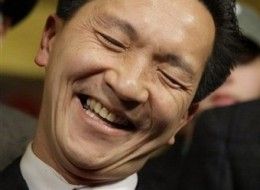 7/31/09 - by Hugh Curran
7/31/09 - by Hugh CurranThere is much debate about health care yet little consideration for the ethical implications, especially the appropriateness of profit motives in the health care industry.
Americans do not seek to make a profit from education (kindergarten to grade 12), fire or police departments, yet people seriously listen to “industry” lobbyists who believe this to be a right in health care.
The philosopher Martin Buber defined “evil” as resulting from “indecision.” Where health care is involved there is a good deal of indecision, but this indecision is largely the result of disinformation by those who profit from health care.
If we begin with the understanding that the health of the whole country contributes to the health of each of us, we can ask if private interests, wishing to maximize profit, should be the arbiters of the public good.
They are investor-owned businesses that design health care systems that benefit their investors. From recent polls we know that two-thirds of the public would prefer a system with a public option.
More than 60 percent of physicians wish for such a system.
Unlike the propaganda of corporate representatives, a public option in health care would provide free choice of physicians for the patient.
Lobbyists shamelessly portray the Canadian system in a negative light although I have yet to meet a Canadian who would be willing to adopt the American model. In fact, no country that has a public option would change to the American model for the simple reason that they know that a health care system based on profits would deny insurance to those who are most in need.
According to the World Health Organization, the U.S. ranks low in two of three main categories associated with health care: preventive care and cost of care. It is true that in a couple of categories the U.S. excels, such as surgery and medical technology, but there are many other criteria for good health, especially in the area of preventive medicine.
In France, whose general health care system is highly regarded throughout the world, providers satisfy the three categories: They provide easier access to medical facilities; life spans are longer; there is lower child mortality, and there is guaranteed health care from cradle to grave financed through tax revenues. The government’s role is to make sure that the whole population has access to care. It protects patients’ rights, helps to work out policy and is the responsible party where health safety is concerned.
Despite this, it is not a single payer.
America now pays out 17 percent of its gross national product on health while France, Canada and England pay less than 10 percent. The trillion-dollar additional cost that has been under discussion in Congress is based on a 10-year cycle that amounts to $200 billion per year.
Compared to the trillion-dollar bailout of banking interests on Wall Street and the trillion-dollar war in Iraq and the continuing hemorrhaging of the auto industry, this is a reasonable amount.
The real reason there are such vehement arguments over public options versus private plans does not involve which is superior but which approach has the most to lose. Large corporations, whether HMOs or pharmaceuticals, are intent on creating indecision and doubt in the minds of many Americans concerning universal health care. Most medical professionals, including the 3 million-member American Nursing Association and the American Medical Association, have endorsed health care plans with public options.
But with all the lobbying taking place by corporate interests there is a real danger that the public option will be removed. This would be a major setback for both working and unemployed Americans. At this moment 14,000 people per day are losing their health care because of the current downturn in the economy.
Democracy cannot long survive if the gaps between rich and poor continue to increase and continue shifting us toward a small wealthy minority and a disappearing middle class. Health care is the largest cause of bankruptcy among the elderly. It bleeds and depletes the resources of families even when one person suffers a serious accident or illness.
Although we pay twice the amount per capita as do other developed countries, the results are that we are less healthy. Let us support a public option based on the common good.
Hugh Curran of Surry is an adjunct professor in peace studies at the University of Maine. He previously was the director of a Down East homeless shelter.





